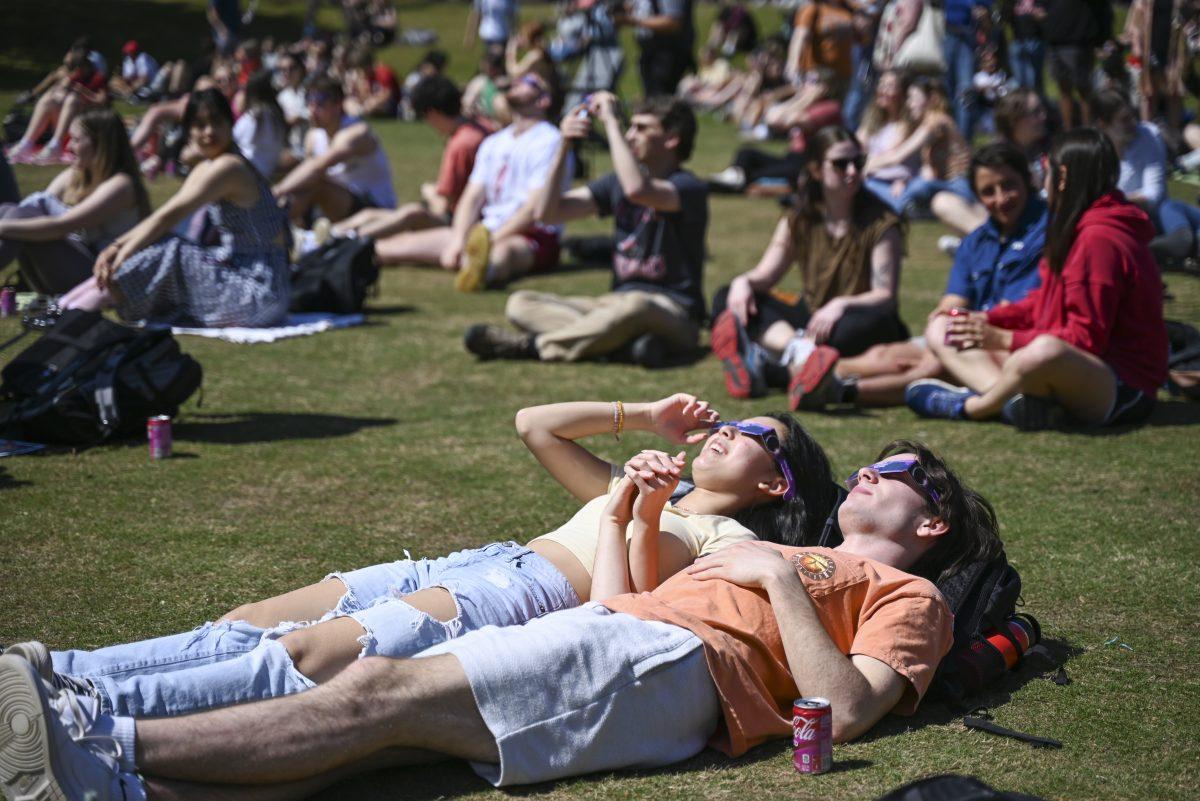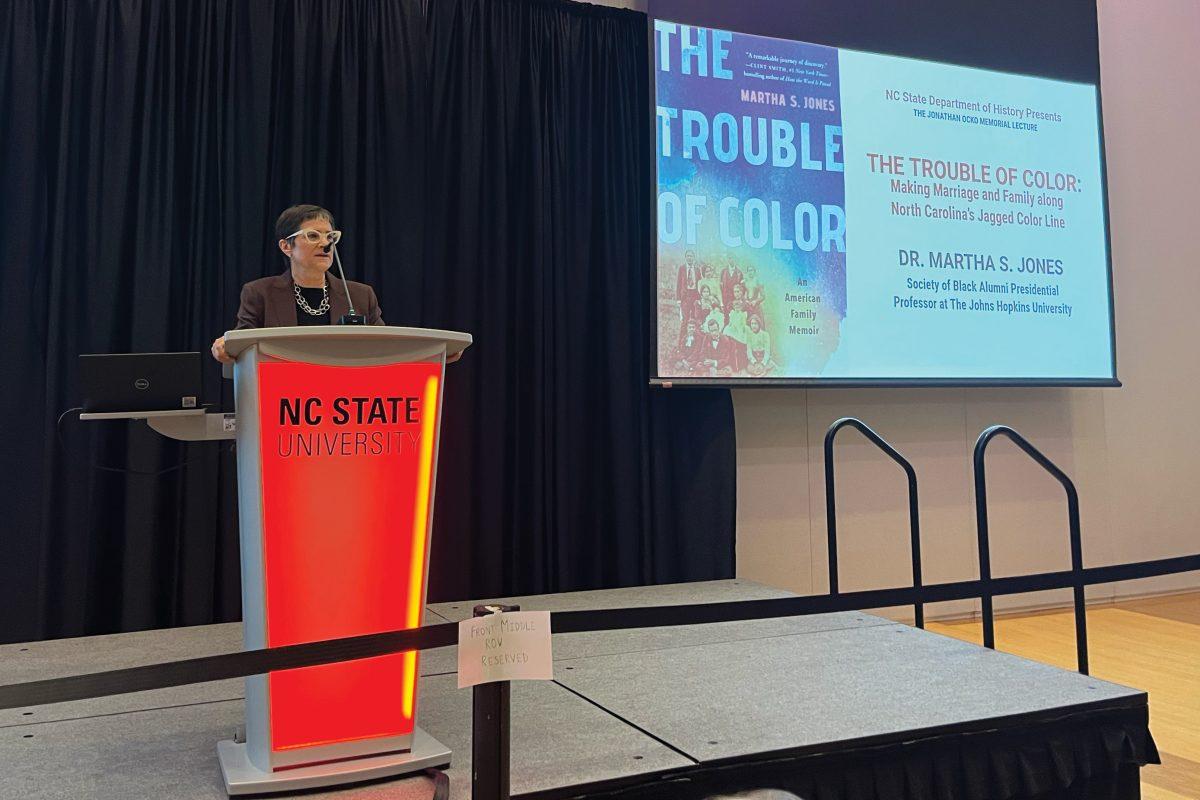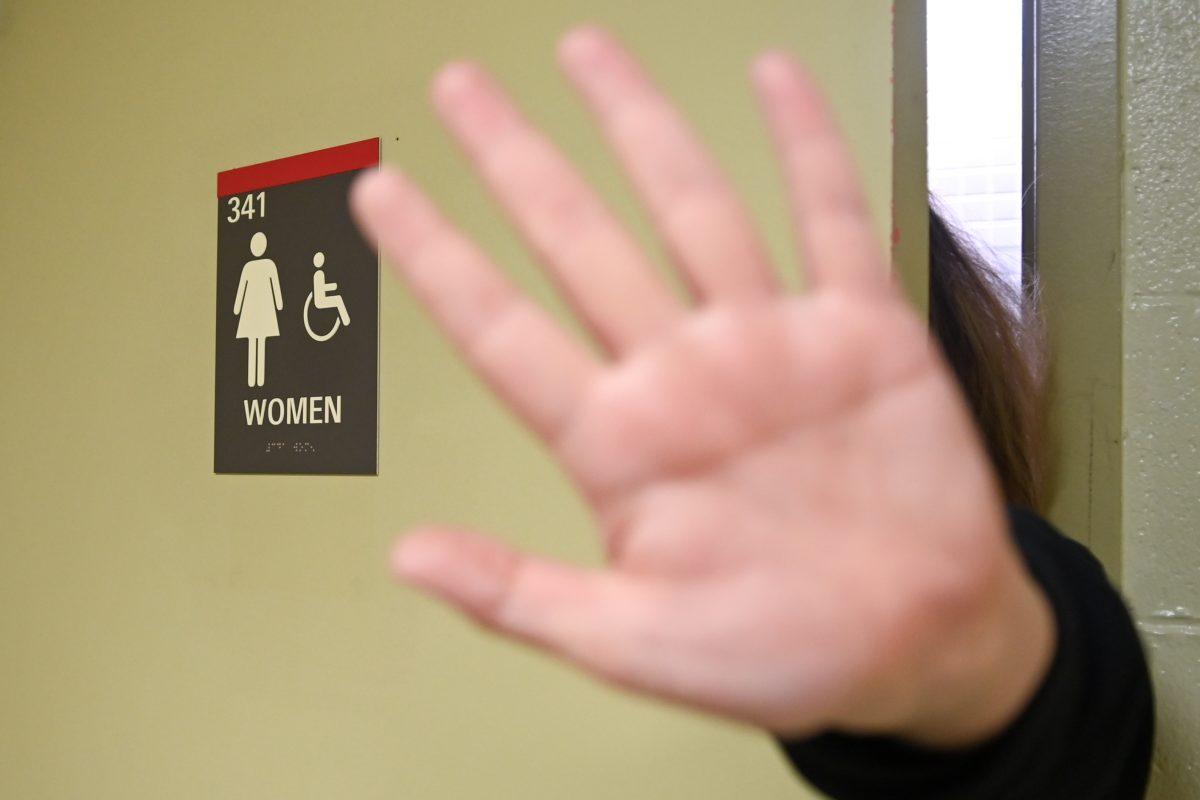Hundreds of students put their normal Monday schedule on pause to crane their necks at the sky for NC State LIVE and Arts NC State’s solar eclipse watch party on Harris Field. Organizers handed out free eclipse-viewing glasses while promoting their artists in residence, Small Island Big Song.
Monday’s total eclipse was the first in the U.S. since 2017 and will be the last until 2044. Although North Carolina was not in the path of totality, Raleigh experienced about 82% eclipse totality.
Bee Mangine, a third-year studying fashion and textile design and an arts ambassador at Arts NC State, helped facilitate the event. They said Arts NC State already planned an event featuring Small Island Big Song, a project featuring indigenous cultures of the Pacific and Indian Oceans, at the same time as the eclipse and decided to host a viewing party so that students could attend both performances and see the eclipse.
Mangine said they hoped the viewing party would attract students who don’t usually attend arts events on campus, especially STEM students who might be more interested in the eclipse.
“We really want to bring the arts to people’s interests rather than make them come to us,” Mangine said. “This eclipse — it’s not a once-in-a-lifetime event, but it’s the last one happening for a while, and so it was really important for us to be able to speak and kind of garner interest at this event … especially on such a STEM-focused university’s campus.”
John Craven, a fourth-year studying business administration and digital outreach and an engagement lead at Arts NC State, said they brought 800 pairs of eclipse glasses and ran out in a matter of minutes.
Grace Sullivan, a third-year studying bioengineering, said she would not have been able to view the eclipse without the event.
“It’s fun to see how many people also care about something, so, it’s not little, but we all get to be here together,” Sullivan said.
Avery Pardue, a second-year studying international studies, said she made sure to appreciate the moment after not fully recognizing its rarity in 2017.
“I feel like I wasn’t as passionate about it then — I didn’t realize the scope of what or how historic it was,” Pardue said. “These are the prime years of our life, and I just feel like it’s the time to be sitting with my friends enjoying the weather and seeing the eclipse.”
Maya Ascher, a second-year studying natural resources, said she appreciated the clarity of the weather after reading that most of the U.S. was experiencing significant cloud coverage.
“Seventy-five degrees, a bunch of college students on a field watching the eclipse with free Coca-Cola, it’s kind of awesome,” Ascher said.
Tim Cole, co-founder of Small Island Big Song, said the project aims to provide a musical statement from people from a region that is facing the brunt of the climate crisis. He said he hoped the eclipse would inspire students to listen to their message.
“This is a moment on Earth where we’re all united,” Cole said. “We’re experiencing this eclipse right now. We hope that the stories and songs we sing will unite us across the planet right now for climate action. This is the one thing that’s touching us all. That’s why we’re called Small Island Big Song. The small island we all share.”












